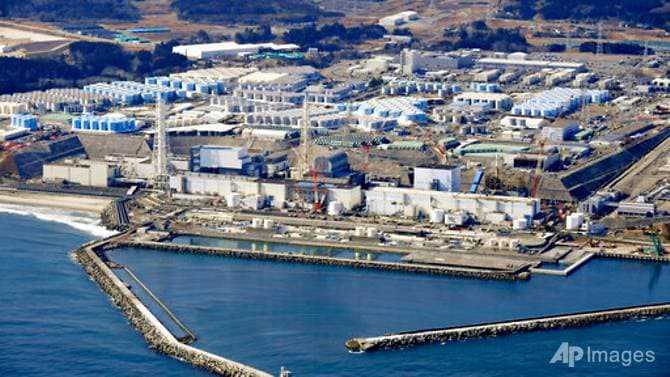How Japan plans release a contaminated Fukushima water into the ocean
13 April, 2021

Japan plans release a into the sea more than a million tonnes of radioactive drinking water from the destroyed Fukushima nuclear station, it said on Tuesday (Apr 13).
The work release a the water will begin in about 2 yrs, the government said, and the complete process is expected to take decades.
CONTAMINATED WATER
Tepco has been fighting the build-up of contaminated water since bringing 3 reactors in order after a 2011 earthquake and tsunami knocked out electricity and cooling.
The business has been by using a makeshift system of pumps and piping to inject water into damaged reactor vessels to keep melted uranium fuel rods cool.
The water is contaminated as it comes in contact with the fuel before leaking into damaged basements and tunnels, where it mixes with groundwater that flows through the website from hills above. The combo results excessively contaminated water that's pumped out and cared for before being stored in enormous tanks crowding the website.
Those tanks now maintain about 1.3 million tonnes of radioactive water, enough for about 500 Olympic-sized pools.
Efforts to deal with the situation have included building a great "ice wall" around the damaged reactors and wells to pull groundwater away before it again gets to the reactors. These methods have slowed, however, not halted, the buildup of contaminated water.
Over the years, Tepco has also battled leaks, spills, malfunctioning equipment and safety breaches, hindering cleanup work expected to run for decades.
In 2018, Tepco admitted it had not filtered all dangerous components from the water, despite saying for years they had been removed.
WATER RELEASE
Tepco plans to filter the contaminated drinking water again to remove isotopes, leaving only tritium, a radioactive isotope of hydrogen hard to split up from water.
Tepco will then dilute the water until tritium amounts fall below regulatory limits, before pumping it directly into the sea from the coastal internet site.
Water containing tritium is routinely released from nuclear crops around the world and releasing the Fukushima water to the sea is supported by regulatory authorities.
Tritium is known as to come to be relatively harmless because it will not emit enough strength to penetrate human epidermis. But when ingested it can raise cancer risks, a Scientific American document said in 2014.
The first water release isn't expected for about 2 yrs, time Tepco will use to get started filtering the water, setting up infrastructure and acquiring regulatory approval.
Until in that case, the buildup of contaminated drinking water will continue, with twelve-monthly costs of water storage area estimated at about 100 billion yen (US$912.66 million).
Once begun, the water disposal will need decades to complete, with a rolling filtering and dilution method, together with the planned decommissioning of the plant.
A REACTION TO OCEAN RELEASE
Tepco is engaging with fishing communities and other stakeholders and is promoting agriculture, fishery and forest goods to get and restaurants to reduce any reputational injury to produce from the region.
However, environmental teams, including Greenpeace, say the federal government should build extra tanks to carry the water beyond your plant rather than choosing the cheaper option of ocean release. Many persons have questioned Tepco's plans since there is a huge degree of distrust of the company.
Fishing unions in Fukushima urged the federal government for years never to release the normal water, arguing it could undo work to restore the damaged reputation of their fisheries.
Last October, the top of Japan's fisheries unions said releasing the water would have a "catastrophic impact" in the industry.
Neighbouring countries have also expressed concern.
On, a good foreign ministry spokesman found in South Korea, which maintains constraints on Japanese produce, said it "expresses serious concerns that your choice could bring a primary and indirect impact on the safeness of our people and surrounding environment".
Municipal councils on Busan and Ulsan, Southern Korean cities near the sea, have called for the release plan to be scrapped.
In China, a foreign ministry spokesman in October urged Japan to do something with a "high sense of responsibility towards its people, neighbouring countries and the international community".
Source:
TAG(s):
